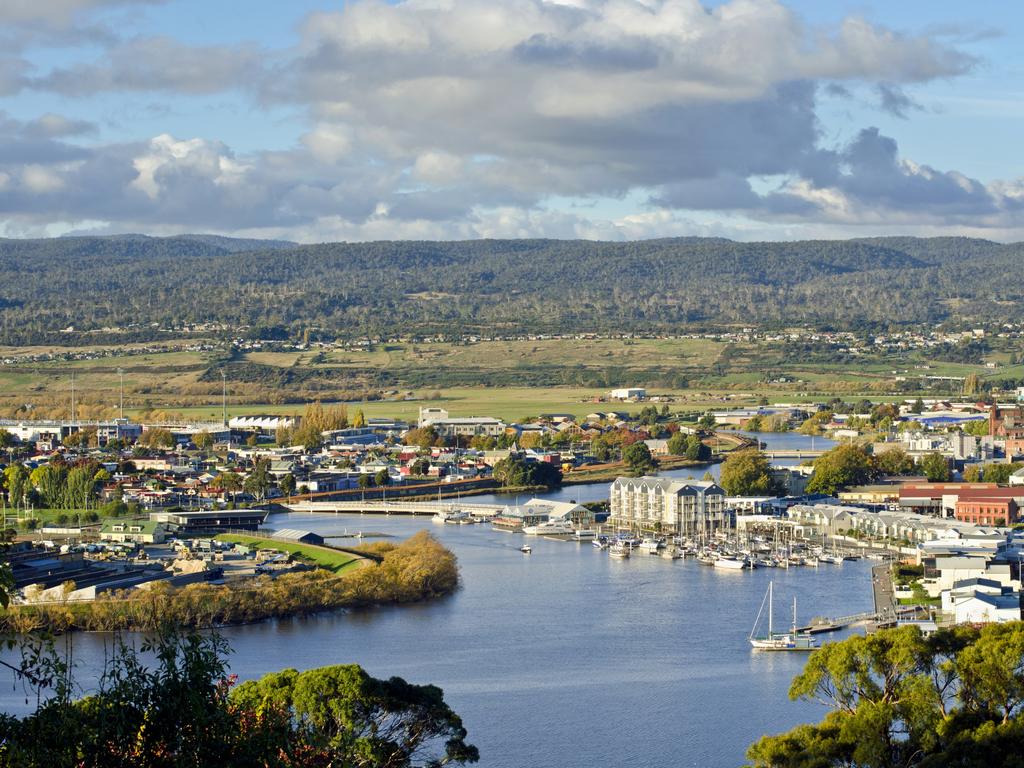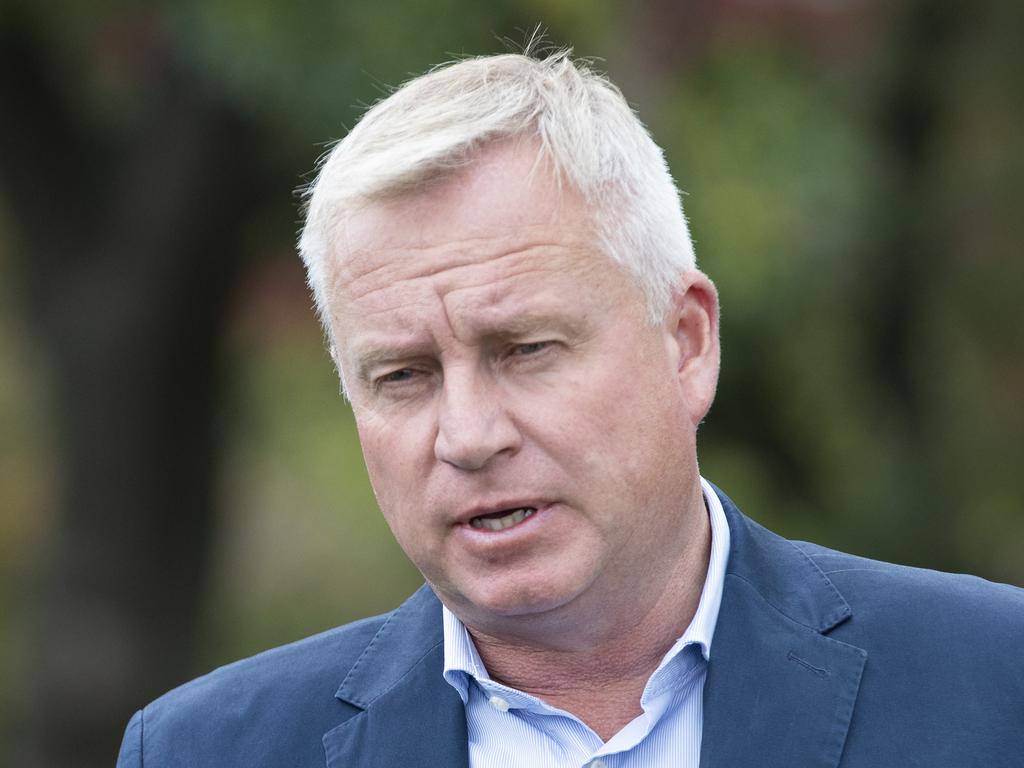Tasmania becoming fiscal ‘basket case’ says Eslake, on independent report calling for tax hikes to prevent crisis
Tasmania has squandered good economic times and is heading for a fiscal crisis unless it reforms taxation, including taxing the family home, a major review warns.

You can now listen to The Australian's articles. Give us your feedback.
Tasmania has squandered good economic times and is heading for a “basket case” fiscal crisis unless it reforms taxation, including taxing the family home, a major review and its author warn.
The Independent Review of Tasmania’s State Finances by independent economist Saul Eslake warns the state budget is unsustainable and tracking towards multiple credit downgrades.
Mr Eslake’s report – forced on the state’s Liberal minority government by the Jacqui Lambie Network – lays the blames squarely at the feet of government, saying the fiscal deterioration began before Covid-19 and has continued since.
“The deterioration in the financial position … over the past decade is entirely attributable to ‘policy decisions’ by government to increase ‘operating’ or recurrent expenses, and spending on infrastructure projects, and to a lesser extent to reduce taxes,” Mr Eslake’s report found.
“By contrast … the effects of factors beyond the control or influence of any state government – such as unforeseen changes in economic activity or employment, or decisions made by the federal government – have, more often than not, had a favourable impact on the government’s finances.”
Mr Eslake’s report, a condition of the JLN’s support for the Rockliff government to govern, warns that unless corrective actions are taken the next decade will see Tasmania’s ballooning cash deficits average almost $1.3bn a year.
It warns net debt – for a state net debt free throughout the 2010s – will soar to more than $16bn, equivalent to more than 25 per cent of gross state product.
Interest payments will rise, it warns, from about $250m in 2024-25 to $730m in 2034-35, the latter about 6 per cent of total revenues.
“Such an outcome would almost certainly result in Tasmania’s credit rating being downgraded, probably by more than one ‘notch’,” the report warns.
“This should not come as a surprise. Since 2016, the Department of Treasury and Finance has repeatedly warned … of the risks to the sustainability of Tasmania’s fiscal position in the absence of corrective action.
“Yet these warnings have gone unheeded, not just by the government of the day, but by all of the major participants in Tasmania’s political process, including during the campaign for the most recent state election.”
Mr Eslake warns returning the state’s finances to a sustainable path will be “politically challenging” and “unlikely to be achieved during the life of the present parliament” (2029).
The report sets out fiscal targets all parties should commit to and recommends broadening the base of payroll tax by lowering the tax-free threshold and over the longer term abolishing stamp duty and replacing it with a broadbased land tax.
As an interim measure, it recommends a surcharge on council rates and extending the tax on foreign property investors to mainlanders, with an exemption for new builds, as well as increases to car registration fees, luxury car tax and mining royalties.
The report recommends a ranking of projects within the state’s ambitious infrastructure program on their social and economic benefits, with spending limited to what is fiscally responsible and deliverable by industry.
Mr Eslake told The Australian the government had on three occasions in the past eight years “completely ignored” Treasury pleas to take “corrective action” to avoid a fiscal crisis.
“I think one of the most important findings in my report is that if you include unfunded super liabilities and the government business enterprises … Tasmania’s finances look worse than Victoria’s or the NT’s,” he said.
“But whereas the term ‘basket case’ has been regularly applied to Victoria, and less commonly to the NT, in recent years, most Tasmanians would I think be surprised to learn that they were in the same category.”
JLN MP Miriam Beswick said the report should “herald the state of a new chapter when it comes to budget responsibility”.
“It shouldn’t have taken the JLN to call for a report like this to be done,” Ms Beswick said. “We’re pleased that Saul Eslake hasn’t recommended cutting spending on services to repair the budget.
“Ideas Saul Eslake has put forward to raise revenue are all worthy of consideration and the JLN will take the time to consult on each and every one of them.”
Treasurer Michael Ferguson said the government would consider the review and respond in the September 12 budget. He ruled out new taxes.
Labor opposition treasury spokesman Josh Willie said the report was “a shocking and sobering verdict”. “The Liberals have driven Tasmania to the brink of financial disaster,” Mr Willie said.
“When Labor left office in 2014, Tasmania had zero net debt. After 10 years of the Liberals, the state’s finances are now on track to become (to quote Mr Eslake) ‘worse than that of any other state or territory over the next three years’.”






To join the conversation, please log in. Don't have an account? Register
Join the conversation, you are commenting as Logout